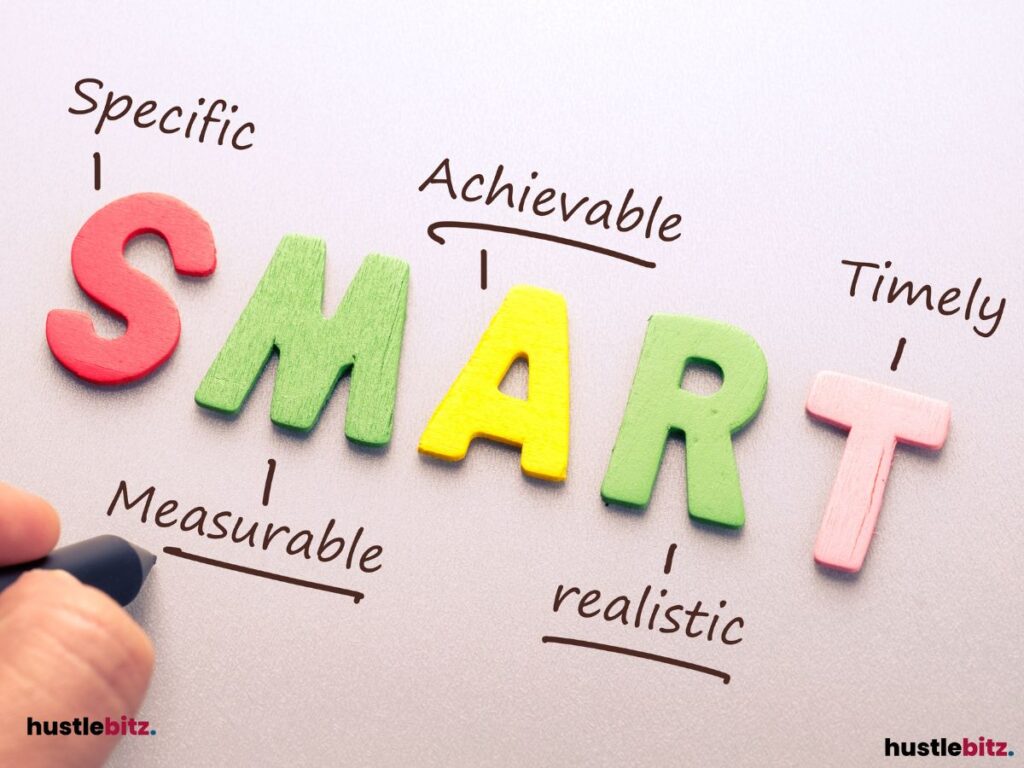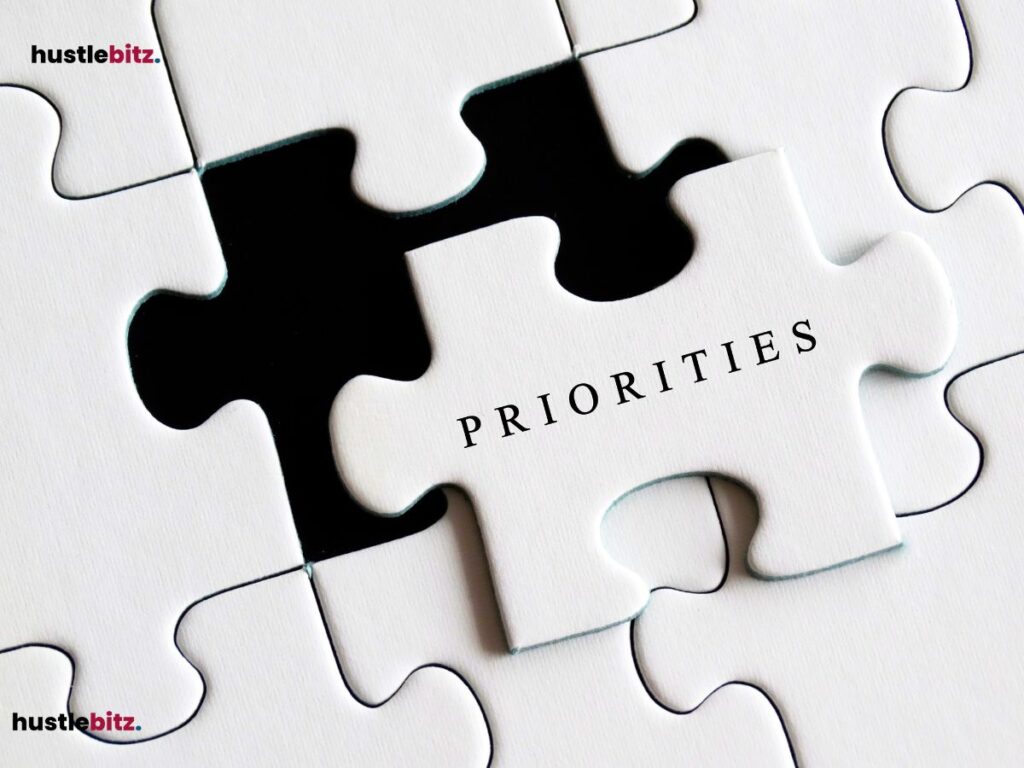To effectively set career growth goals, begin by defining a clear long-term vision aligned with your aspirations. Break this vision into smaller, manageable steps to avoid overwhelm. Utilize the SMART criteria—Specific, Measurable, Achievable, Relevant, and Time-bound—to ensure clarity and focus. Prioritize your goals based on importance and relevance to your career path. Create a detailed action plan with specific tasks and deadlines for accountability. Regularly assess your progress and celebrate small wins to maintain motivation. By implementing these techniques, you can navigate your career journey more smoothly, discovering further strategies to enhance your growth along the way.
Key Takeaways
- Define clear long-term career aspirations to guide your goal-setting process effectively.
- Break larger goals into smaller, manageable tasks to enhance focus and reduce overwhelm.
- Utilize SMART criteria to ensure goals are specific, measurable, achievable, relevant, and time-bound.
- Develop an action plan detailing specific tasks and timelines for accountability and progress tracking.
- Regularly evaluate performance against goals and celebrate achievements to maintain motivation and commitment.

Understanding the Basics of Career Growth Goal Setting

Effective career growth goal setting begins with a clear understanding of one’s aspirations, skills, and the pathways necessary to achieve professional advancement. Individuals must first identify their career aspirations, which serve as guiding stars in their journey. This process should be complemented by a commitment to ongoing professional development and skill enhancement, enabling individuals to adapt to evolving industry trends.
Networking strategies play a critical role in career advancement. Building a robust professional network can open doors to mentorship opportunities, providing invaluable guidance and insights from experienced professionals. Additionally, fostering strong personal branding can enhance visibility and credibility within one’s industry, further supporting career objectives.
Regular performance evaluations are essential in tracking progress toward set goals. By assessing strengths and areas for improvement, individuals can adjust their strategies accordingly, ensuring they remain aligned with their aspirations. Moreover, maintaining a healthy work-life balance is crucial; it allows for better focus and productivity, ultimately contributing to long-term success.
Resilience building is another fundamental aspect of effective goal setting. Career paths are often fraught with challenges, and developing the ability to bounce back from setbacks is vital. By understanding these basics of career growth goal setting, individuals can create a structured approach to their professional journeys, ensuring that they not only set goals but also cultivate the skills and networks essential for achieving them.
Define Your Long-Term Vision

A well-defined long-term vision serves as a compass that directs career growth efforts, ensuring that aspirations align with actionable goals and strategies.
Crafting a robust career vision begins with reflecting on your long-term aspirations, which should harmonize with your personal values and professional identity. This alignment not only promotes authenticity but also fosters passion for the work you pursue.
In the context of future planning, consider the motivational factors that drive you. What inspires your interest in your industry? Are there specific legacy goals you wish to achieve? By integrating these elements, you create a vision that is both meaningful and actionable.
Additionally, staying informed about industry trends is crucial for effective career vision development. Understanding where your field is heading enables you to anticipate changes and adapt your skill development accordingly. This proactive approach ensures that you remain competitive and relevant in a constantly evolving job market.
Moreover, your career vision should incorporate passion alignment, as engaging with work that resonates with your interests significantly enhances job satisfaction and overall performance.
Break Goals Into Smaller Steps
Breaking goals into smaller steps enhances focus and makes the path to achievement more manageable. This approach allows individuals to create a series of milestone achievements that serve as markers of progress on their career journey. By segmenting larger goals, you can identify specific tasks that contribute to skill enhancement and facilitate effective progress tracking.
Utilizing motivation techniques, such as celebrating small wins, can significantly boost your enthusiasm and commitment. Establishing feedback loops enables you to assess your performance regularly, making necessary adjustments to your strategies. This iterative process not only enhances adaptability skills but also reinforces the importance of self-reflection practices in evaluating your growth.
Moreover, breaking goals into smaller steps encourages efficient resource allocation, ensuring that you are investing time and energy where it matters most. This is particularly vital for effective time management, as prioritizing smaller tasks can prevent overwhelm and promote a structured approach to your career objectives.
In addition, integrating networking strategies into your smaller steps can help you build valuable connections and gain insights that further your development. By focusing on these actionable steps, you cultivate a proactive mindset that fosters continuous improvement and growth.
Ultimately, breaking down goals not only simplifies the journey but also empowers you to navigate challenges with resilience and clarity, laying a solid foundation for long-term career success.
Use SMART Criteria

Utilizing the SMART criteria—Specific, Measurable, Achievable, Relevant, and Time-bound—provides a structured framework for setting clear and attainable career goals. By applying these principles, individuals can create measurable objectives that not only clarify their aspirations but also enhance their focus and motivation.
When defining specific outcomes, it is essential to articulate what you aim to achieve with precision. For instance, rather than stating a vague intention to improve your skills, specify which relevant skills you intend to develop. This specificity leads to achievable targets, ensuring that your goals are realistic and attainable within your current capabilities.
Incorporating measurable objectives allows you to establish performance indicators that can be quantitatively tracked. By defining criteria for success, you can implement progress tracking mechanisms that will help you assess your advancement toward your goals. This systematic approach encourages the establishment of feedback loops, enabling you to refine your strategies based on what is working and what is not.
Furthermore, ensuring that your goals are time-bound creates a sense of urgency and commitment. Setting deadlines fosters goal alignment with your professional timeline, motivating you to take consistent actions toward completion.
Prioritize Your Goals

Establishing clear priorities among your career goals is vital for effective progress, allowing you to focus your efforts on the most impactful objectives first. This process begins with goal alignment, ensuring that your personal aspirations resonate with your organization’s mission. By evaluating which goals yield the highest return on investment, you can streamline resource allocation, directing your time and energy toward priorities that enhance your professional development.
Effective time management is essential when prioritizing goals. Assess each goal against performance metrics, identifying which will contribute most significantly to your growth. Integrating support systems—such as mentors or professional networks—can provide guidance and encouragement as you pursue these priorities.
Incorporating motivation strategies is crucial to maintaining enthusiasm and commitment. Regularly revisiting your goals through feedback loops helps you stay aligned with your objectives and adjust your approach as needed. This process encourages skill enhancement, allowing you to advance in areas that support your overarching career aspirations.
Furthermore, consider the role of networking opportunities in your goal prioritization. Building connections can open doors to new ventures and collaborations that may align with your primary objectives. Lastly, prioritize adaptability training; being open to change allows you to shift focus when necessary, ensuring your goals remain relevant in a dynamic work environment.
Create an Action Plan
An effective action plan is essential for translating your career goals into tangible steps that facilitate measurable progress and achievement. To create a robust action plan, begin by identifying specific action items that align with your prioritized goals. Each action item should be clearly defined and manageable.
Next, allocate your resources wisely, ensuring you have the necessary tools, time, and support to implement your plan. Conduct a skill assessment to identify areas where you may need further development, allowing you to focus your efforts efficiently.
Milestone tracking is critical for monitoring progress. Set up a system that allows you to evaluate your achievements regularly, using performance metrics to gauge success. Incorporate feedback loops by engaging with accountability partners who can provide constructive criticism and encouragement throughout your journey.
To maintain motivation, develop motivation strategies that resonate with you. This could include visualizing your goals, creating a compelling vision board, or setting up regular check-ins with your accountability partners. Additionally, adaptability planning is crucial; be prepared to revise your action plan based on changing circumstances or insights gained during your progress.
Lastly, implement celebration techniques to acknowledge your achievements, no matter how small. Recognizing milestones not only fosters a sense of accomplishment but also boosts your motivation to continue pursuing your career objectives. By systematically following these steps, you can create a comprehensive action plan that drives your career growth forward.
Set Deadlines for Accountability

Setting deadlines for your career goals is crucial in holding yourself accountable and ensuring consistent progress towards achieving your objectives. By establishing specific time frames, you can implement effective time management strategies and enhance your motivation techniques. Deadlines create a sense of urgency, prompting you to prioritize tasks and stay focused.
To facilitate your goal-setting journey, consider utilizing accountability partners who can provide support and regular feedback loops. These partnerships can enhance your performance reviews by offering insights into your progress while also serving as commitment contracts, reinforcing your dedication to your objectives.
Incorporating deadline reminders into your routine can significantly aid in maintaining momentum. Below is a table that outlines key components for setting effective deadlines:
| Goal Type | Deadline | Milestone Celebration |
| Skill Development | 3 months | Course completion |
| Networking | Monthly | New connections |
| Project Completion | 6 weeks | Presentation |
| Certification | 1 year | Certification award |
| Personal Growth | Bi-monthly | Reflective journaling |
Utilizing goal visualization techniques can also enhance your commitment to deadlines. Visualize the successful completion of your goals to maintain motivation and clarity throughout your journey. Celebrate milestones to acknowledge your progress and renew your commitment, reinforcing the significance of your deadlines. By systematically applying these strategies, you will foster a productive environment conducive to achieving your career aspirations.
Final Thoughts
Effective goal setting is integral to advancing your career with purpose and clarity. By defining a clear long-term vision, breaking goals into manageable steps, and utilizing the SMART criteria, you establish a solid foundation for achieving your professional aspirations. Prioritizing your goals and creating a detailed action plan ensures that your efforts are focused and impactful. Setting deadlines and regularly assessing your progress keeps you accountable and motivated, while seeking feedback and support helps refine your strategies and enhance growth. Embrace these techniques to navigate your career path confidently, turning your ambitions into tangible achievements and fostering ongoing professional development.




